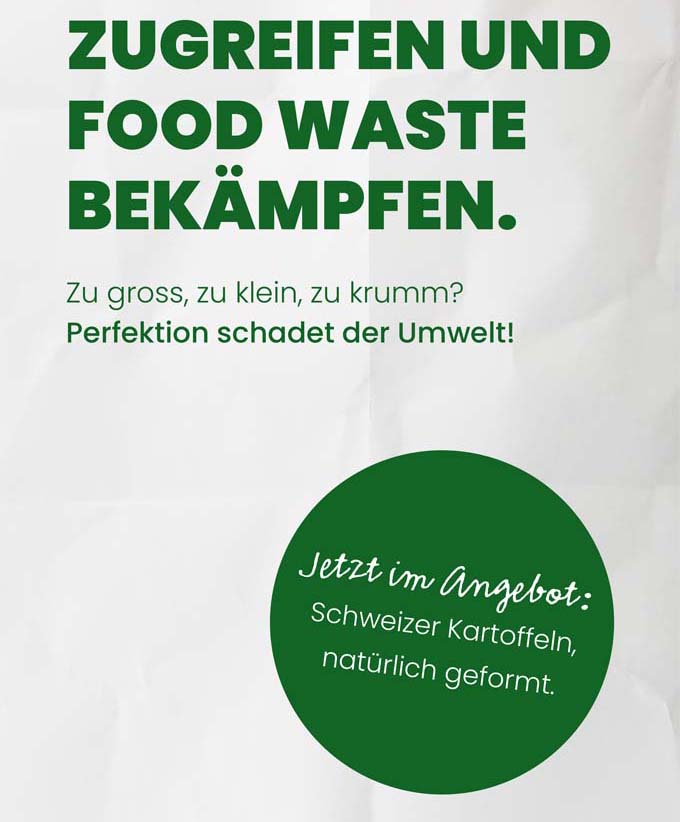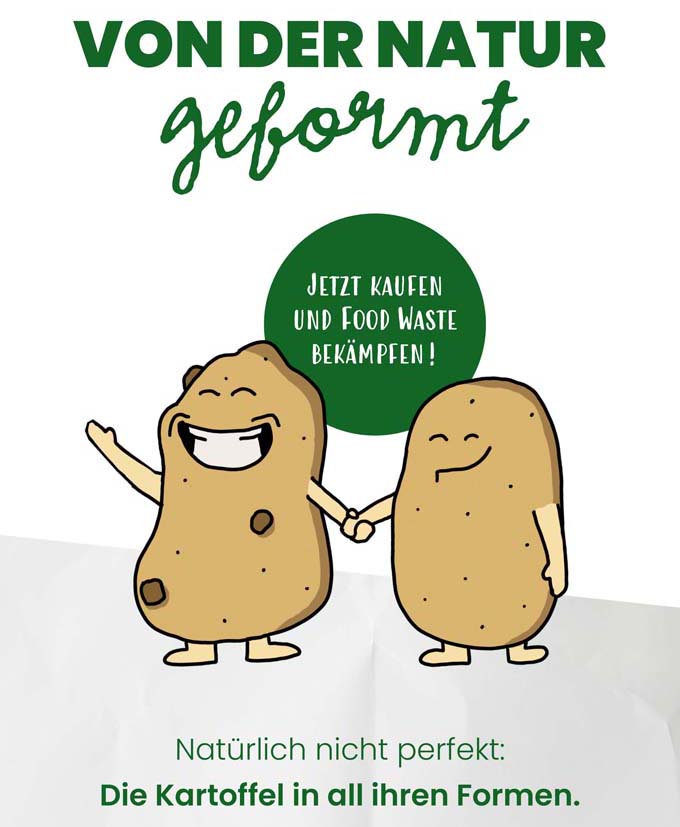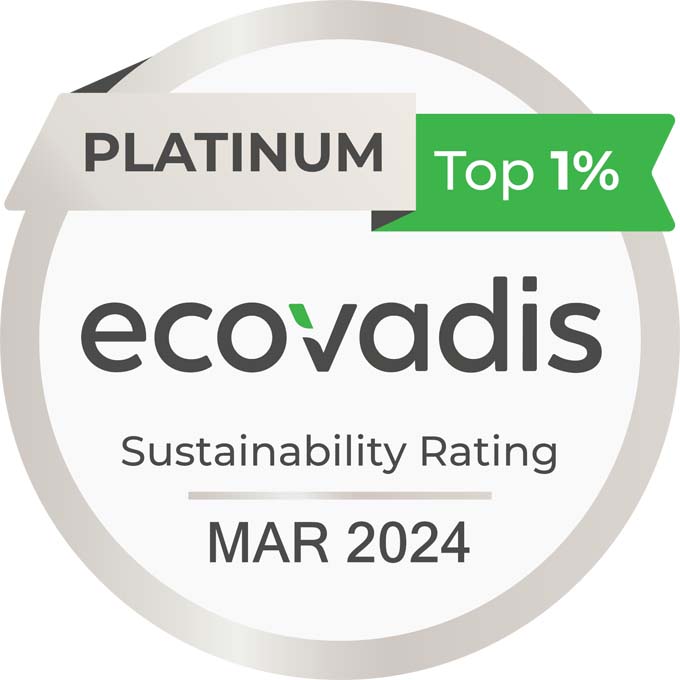Perfection harms the environment
Potatoes do not have to meet traditional quality standards to be purchased. This is revealed by a recent study conducted by the HWZ University of Applied Sciences in Zurich as an internal research project in spring 2023. The research report sheds light on the impact of food waste and quality standards on the environment and on people's purchasing behavior, which can be changed through targeted measures.

The dietary habits of the population have the greatest influence on environmental pollution, with a share of 28 percent, compared with other environmental impacts. A quarter of this impact is due to avoidable food losses, where mandatory quality standards play a significant and equally problematic role for producers. These standards specify what vegetables, fruits, and potatoes must look like to be sold at retail. These rules often exist because of consumers' high expectations for the outward appearance of food products. The recent study at HWZ at least partially refutes this assumption.
Three Spar stores tested how customers reacted to unconventionally shaped potatoes - whether because they were too big, too small or misshapen. During one week, these potatoes were sold at a discount of CHF 0.30 per kilogram, or about 10 percent, in two stores and at the same price as the normally shaped potatoes in another store. During the second week, attractively designed "nudges" in the form of three different posters were used to draw attention to the deviations from quality standards and the associated food waste.

Shaped by nature
The results of the study are surprising. Even without a discount, 16 percent of customers purchased the non-standard potatoes, compared to an impressive 77 and 86 percent with a 10 percent discount. The use of specially made "Nudge" posters led to even higher uptake in two of the three stores. Even without a discount, a quarter of customers reached for the potatoes that would otherwise have become food waste. A poster that read "shaped by nature" and featured two cutely illustrated potatoes achieved the greatest positive change.
Combating waste with information
The operator of the three Spar stores, Hans-Ruedi Schnellmann, assessed the experiment as extremely valuable. He emphasizes: "It is important to inform consumers that not everything that is harvested has to meet exact standards, as is usually found on the supermarket shelf. The results clearly show that there are still important challenges ahead on the topic so that food waste can be reduced sustainably."
The author of the bachelor thesis at the HWZ, Sarah Handschin, says about the motivation for her study: "It has always been incomprehensible to me why edible fresh products are wasted because of their outward appearance. The experiment clearly showed me that the current standards still need to be adapted."
Dr. Stephan Feige, Head of the Authentic Branding Unit and supervisor of this study at the HWZ, appreciates the results of this project and sees opportunities arising from the clear findings: "We will continue the project with a follow-up study, as it still requires a lot of persuasion and positive examples to address the problem of food waste on a broad scale. There are many product categories where there is still significant potential to reduce waste."
Sarah Handschin's study provides valuable impetus for avoiding food waste and shows easily implementable ways in which products that deviate from traditional quality standards can be successfully sold at retail with creative advertising and information campaigns. Although the content of this pilot study focused on potatoes, the results to date already point in the right direction, which will now be fleshed out with further studies and a broader data base. The aim is to develop a "tool box" that can then be used specifically to combat food waste in various product categories.
Source: www.fh-hwz.ch









